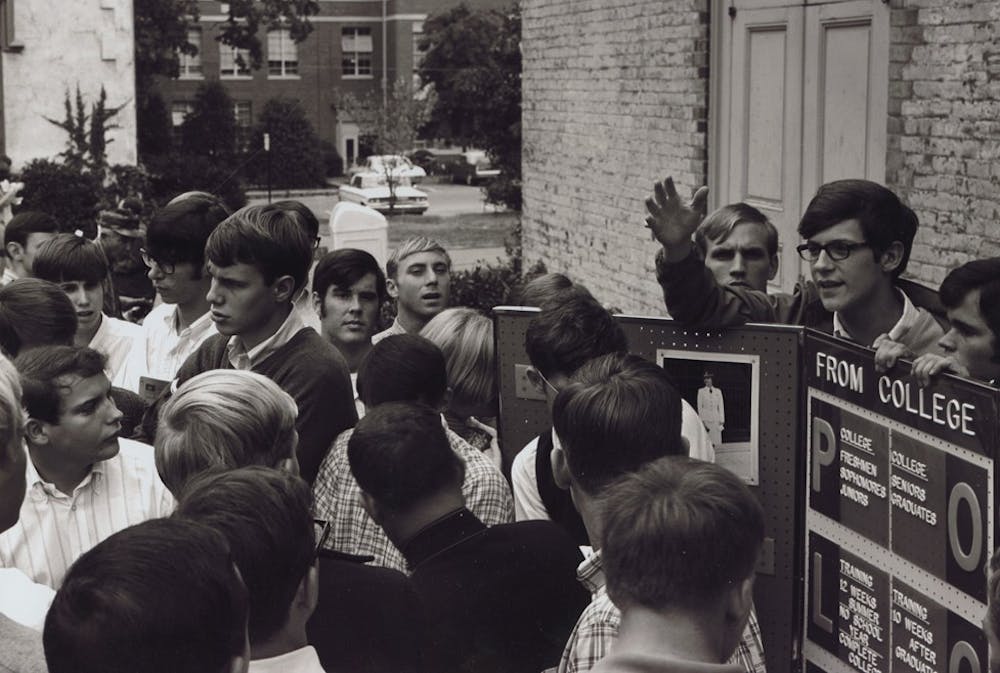“People within the Campus Y went out into the community in search of diverse students,” Betubiza said. “The Y was one of the only places they could go and people would treat them with respect.”
The Campus Y’s history brims with protests and rallies, including some during the food workers’ strike of 1968-69, when the predominantly black cafeteria staff teamed with the Black Student Movement and Campus Y to improve wages.
Though it was never called on to take action, the National Guard was stationed in Durham at the request of the governor in preparation for an outbreak of violence. The workers reached an agreement to raise wages for the University’s lowest-paid employees.
During the speaker ban controversy of 1963-68, Campus Y leaders helped set up a lawsuit challenging the banning of Communist speakers Herbert Aptheker and Frank Wilkinson.
Campus Y students went on to protest the Vietnam War with a series of rallies culminating in a trip that took hundreds of UNC students to Washington, D.C.
Years later, Campus Y students would build shanty towns in the middle of the Pit to rally against Apartheid in South Africa in what Hudson Vaughan, program director of the Campus Y, described as “a visual form of protest, a way of mobilizing awareness.”
In the early 1990s, Campus Y students protested in support of a freestanding black cultural center, what is now known as the Sonja Haynes Stone Center.
“It’s always been a place where students felt welcome,” Vaughan said.
Vaughan said he has seen the Campus Y evolve and diversify considerably over its history.
“There are just so many diverse approaches to social issues, from combating poverty locally, to disasters relief efforts, to international relations efforts,” he said.
Virginia Carson, a student at UNC between 1967-71 who went on to serve as the Campus Y’s director from 1993 to 2002, reminisced on the Y’s integral impact on UNC.
“The Y was by far the most active place on campus, a place to go to debate issues, to find kindred souls and to work together on various projects,” Carson said. “It’s got a long history of inspiring students to roll up their sleeves and work on whatever matters to them.”
To get the day's news and headlines in your inbox each morning, sign up for our email newsletters.
She added that Campus Y participants have been unwavering in their passion.
“The issues students care about change,” she said. “Each generation has a roster of issues they want to work on.”
Richard Harrill, co-director of the Campus Y, said he is optimistic that the organization’s relevance will continue within the community.
“There’s a new emphasis across the University on entrepreneurship and innovation,” he said. “The re-design of the University around solving students’ problems is making it a more interdisciplinary, more collaborative and exciting place to be.
Vaughan said he hopes the Campus Y will uphold its vision of service to the state and global community in the 150 years to come.
“We hope it continues to find ways to reflect the very best pieces of our society,” he said.
The anniversary celebration will feature a weekend of presentations, speakers and activities, all based on a “social innovation” theme.
“It’s a cool new term, but the Y has been a social innovator for 150 years,” Betubiza said.
Contact the University Editor at udesk@unc.edu.



